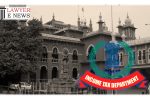The Balancing Act Between Fiscal Autonomy and National Economic Stability: Supreme Court Denies Kerala’s Interim Borrowing Relief

In an impactful judgment delivered by the Supreme Court on 1st April 2024, the constitutional conflict between state fiscal autonomy and national economic stability came to the forefront. The Bench comprising Justices Surya Kant and K.V. Viswanathan tackled the contentious issue arising from Kerala’s challenge against the borrowing restrictions imposed by the Union of India. The State of Kerala, citing Article 293 of the Constitution, argued that the Union overstepped its bounds by amending the Fiscal Responsibility and Budget Management Act, 2003, and by setting a borrowing ceiling, thereby infringing upon the state’s fiscal autonomy.
The court’s meticulous ‘dissection of the issues began with the State of Kerala’s assertion that the Union lacked authority under Article 293 to regulate all state borrowings and that liabilities arising from public accounts and state-owned enterprises should not be counted under this ceiling. Kerala’s urgent plea for interim relief to borrow INR 26,226 crores to meet various budgetary obligations was a focal point of the hearing.
The Union of India defended its position by emphasizing the need to maintain the country’s fiscal health, arguing that unrestricted state borrowings could jeopardize national economic stability and creditworthiness. The Union highlighted that Kerala’s financial woes stemmed from fiscal mismanagement, not from the imposed borrowing regulations.
In its deliberation, the Court applied the ‘Triple-Test’ for interim relief – assessing the prima facie case, balance of convenience, and the presence of irreparable injury. The bench concluded that Kerala failed to establish a prima facie case and observed that granting interim relief could adversely affect India’s fiscal health. Moreover, the Court noted that the financial hardship claimed by Kerala did not constitute irreparable injury, as monetary damages are typically rectifiable.
Ultimately, the Court denied the interim relief sought by Kerala, observing that the balance of convenience favored the Union of India. The decision emphasized the delicate balance between a state’s fiscal autonomy and the overarching need to maintain national economic stability.
The Court, acknowledging the constitutional significance of the issues raised, referred the main case to a larger bench for an authoritative interpretation of Article 293 and its impact on fiscal federalism. It clarified that its observations in denying interim relief were limited to this specific application and should not influence the final judgment on the original suit.
This ruling highlights the complex interplay between state rights and national priorities, setting the stage for a deeper constitutional examination of fiscal federalism in India.
Date of Decision: 1st April 2024
State of Kerala vs Union of India





